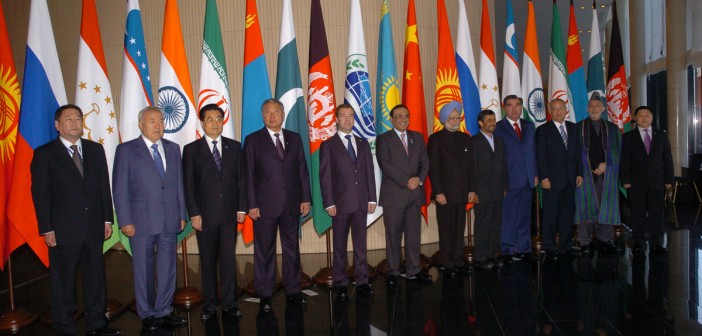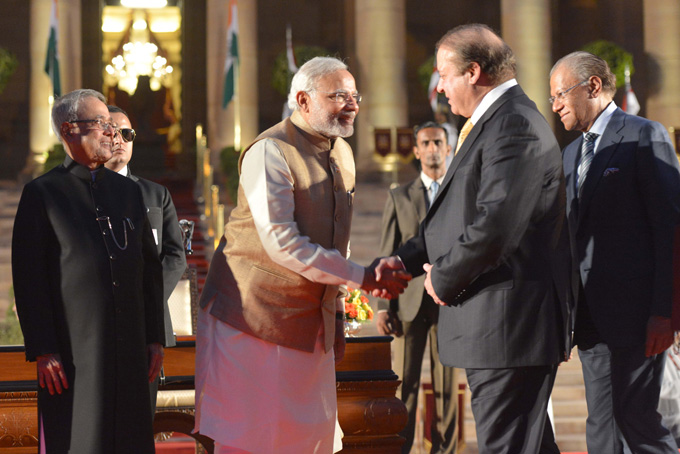The emerging nations are caught in a constant tug of war between competition and cooperation. As their economies grow, the pressure to lean more to one side or the other, increases. China and India are the fastest growing economies in the world, and are increasingly coming into economic conflict. The ‘Make in India’ campaign actively seeks to usurp China’s position as the world’s largest manufacturer. India’s increasing progress in the space sector may soon pose a real challenge to China’s efforts. Neither country would make any secret about the competition and tension between India and Pakistan. In diplomacy, however, some issues are temporarily more important than minor disputes and economic competition. Particularly when they threaten the security of all countries combined.
It has been announced that India and Pakistan will join the Shanghai Cooperation Organisation (SCO). The SCO was established in 1996, the key founding members being Russia and China. It is a form of political, economic, and military union, but its main focus is on military and security. The situation in Afghanistan has remained volatile and dangerous. Both Pakistan and China border the country, and India is close in the region. The induction of India and Pakistan into the SCO is about Afghanistan, and the potential security risks that all of these countries may face.
Afghanistan’s political problems are extremely severe.
The Taliban is locked in conflict with the official Afghan government, and warlords still wield much power. It is in the interest of China, Pakistan, India, and other countries in the region (and indeed, around the world) to work towards a peaceful and stable Afghanistan. China has already begun to help facilitate this. China has played mediator in meetings between the Taliban and representatives of the Afghan government. Pakistan hosted both this week. With the cooperation of the world’s upcoming powers, Pakistan can secure its western border, and all can ensure that a peaceful country rests in their midst.
However, this is not the dawn of a new powerful and friendly alliance in Asia. The decision for India and Pakistan to join the SCO at the behest of China, is strategic in nature. The shared goal of these countries is a secure Afghanistan, and until this is reached, they are willing to work together.
The military feature of the SCO means that the countries could commit troops if needed, and would be willing to pool security and intelligence information. As soon as this situation is reached, cooperation will not continue. The pursuit of a peaceful Afghanistan is not for its own sake. Though it would secure the region, greater factors are at play.
Afghanistan is opportunity. The Chinese already already has economic interests in the country. In 2012, they secured oil rights for the Amu Darya basin. This year, China has announced a $300m investment package, and a railway line between Chaman in Pakistan and Balochistan in Afghanistan.
The Afghan theatre may be the perfect setting for the next stage of the Indo-Chinese saga. China and India continue to jostle for prominence, both in the region, and the world. A peaceful Afghanistan would allow this competition to continue on a new frontier.
China is also interested in Afghanistan’s mineral resources. With a stable government that it helped to shore up, China hopes to gain access to these resources in gratitude. With increasing peace talks, and these apparent new alliances, it is clear that Afghanistan will soon be the setting for a very new type of war. This one could also last years.
If you like this article you may be interested in “Afghanistan Appoints Women Rangers to Protect First National Park”.







